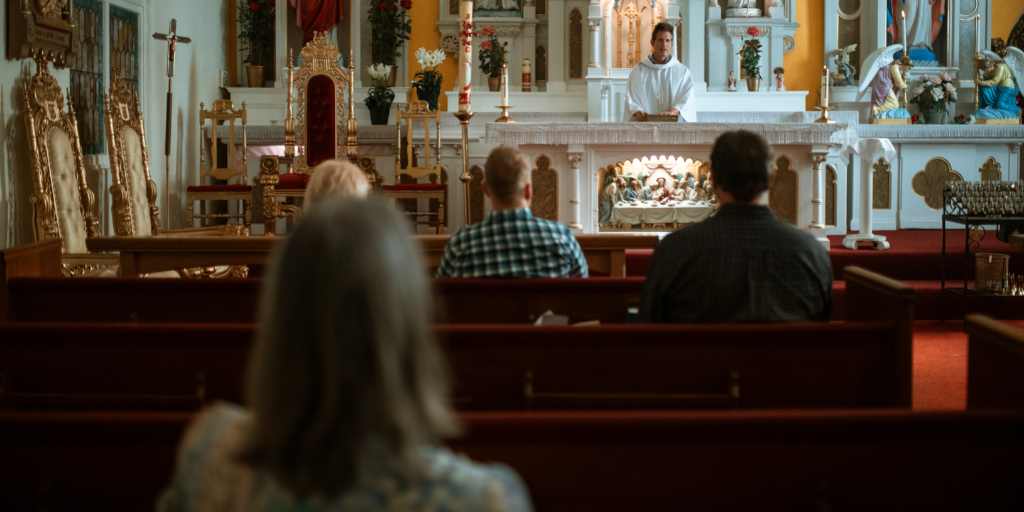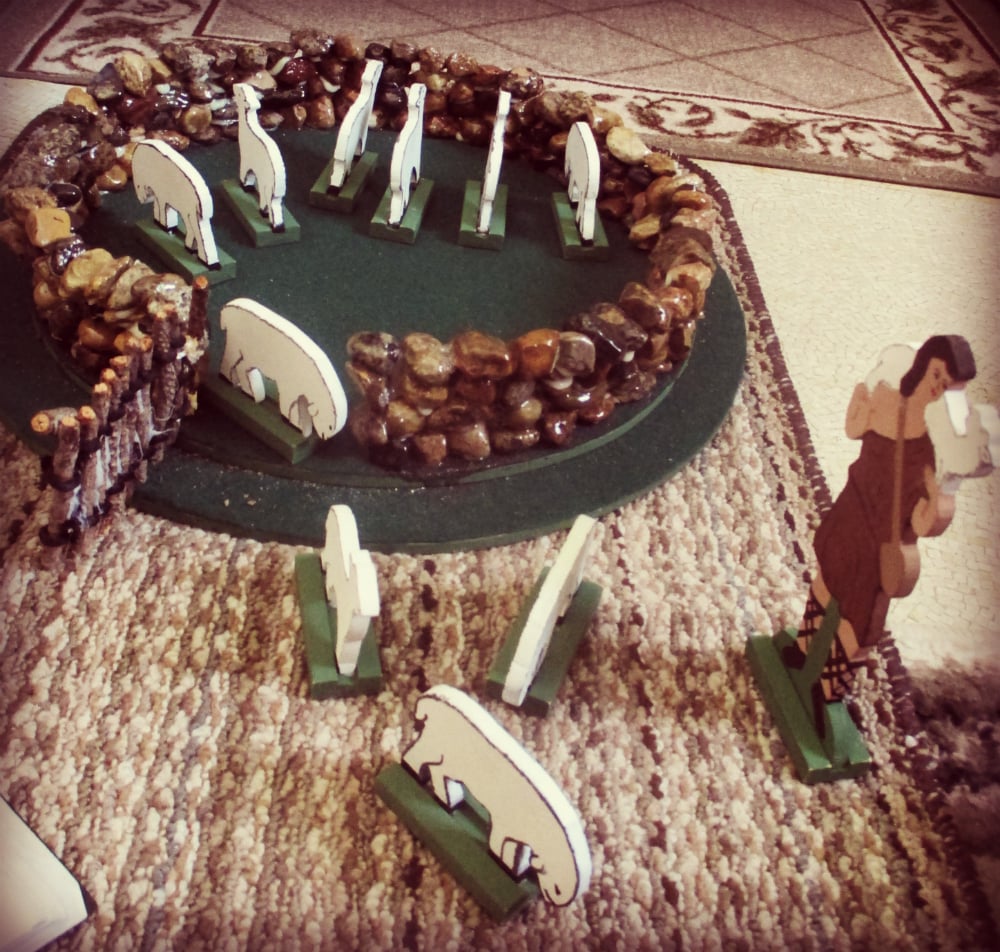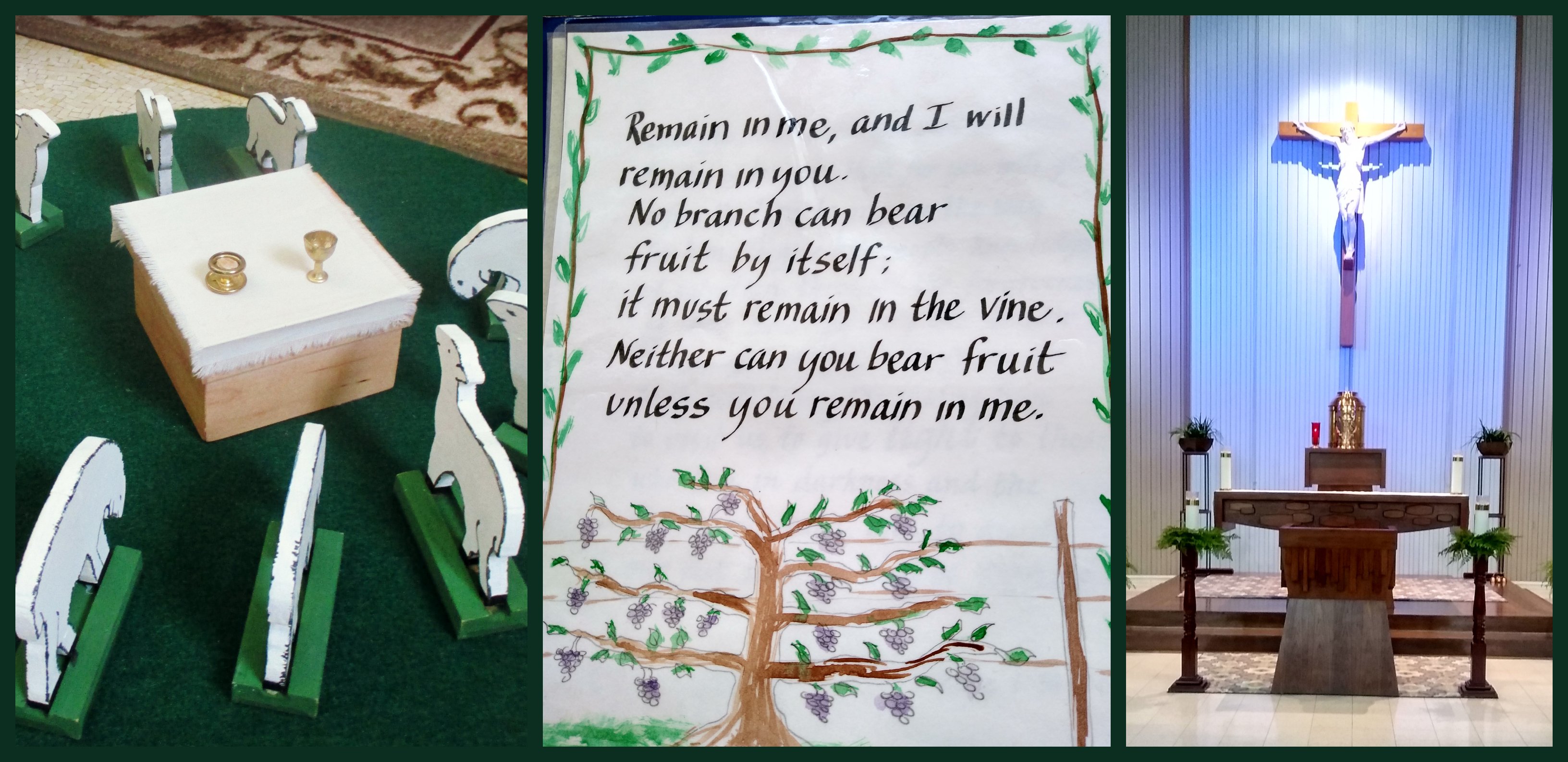
Jane Korvemaker contemplates the Parable of the Lost Sheep in a whole new way.
Has it ever struck you that it seems weird that in the parable of the found sheep, the shepherd leaves the ninety-nine? I happened upon today’s Gospel reading and it stood out to me, though my thoughts went to Luke’s rendition of this parable, not the Matthean version in today’s readings. Luke draws this parable out more; the message is repeated and expanded most in the last of the three vignettes (the found sheep is Luke 15:3-7; the found coin is Luke 15:8-10; the loving father is Luke 15:11-32).
I can’t say that I’ve often felt like the lost sheep as an adult. For the majority of my adult life, I believe I would comfortably put myself categorically as a "Sheep Who Does Not Get Lost." As I reflect on Luke 15, there are a few places this puts me. My Shepherd may not be visible to me right now while searching for the lost, but he has appointed other shepherds to watch in his place. For shepherds in Jesus’ time, if there was a need to look for a lost sheep, another shepherd would take responsibility for the majority.

The sheep of this flock can be seen as a community, or as we Catholics might say, the ecclesia (the Church). We have appointed to us shepherds to care for us in the visibly absent Shepherd. The Shepherd is still present to us, but is made visible through His delegated shepherds. When the Shepherd returns with the sheep who is found, He celebrates exuberantly with others in the midst of the sheep, His dwelling.
If I am in the "Does Not Get Lost" category, then I enjoy the safety of being with others and know that my Shepherd has left someone to care for us in His absence. I am not fraught with worry about my safety or whether I will be able to find enough food for myself; my Shepherd takes care of me.
Now, when I look to the third part of this parable which is meant to repeat and expand on the themes of the first two vignettes, which camp does this put me into? If I am not identifying with the lost sheep, then it would be strange to suddenly switch to identifying as the lost son. This means that I must put myself in the place of the older son, who is at home, and not worried about his safety or where he will find his next meal.
We see that the lost son comes back to the sheepfold and the loving father also celebrates exuberantly with others in the midst of his household. But this time, another sheep is missing from the sheepfold. Not lost visibly, as the older son is only just outside of the house, but he is missing. This lost-ness is of a different nature, where it seems that one can be visible but yet not present. This strikes me suddenly as uncomfortably relatable.
Have I been in my Church community, a.k.a. the Father’s household, a.k.a. the sheepfold, visibly but not truly present?

I don’t believe I’m angry that others are welcomed into my Father’s house, nor feel that I’m slaving away doing work for the ecclesia. But am I inheriting, that is, incorporating into myself, all that the Father is giving me? “Everything that I have is yours” (Luke 15:31b). Everything. This is more than just property and material items. It is His presence, inclusion in His intimate community (the ecclesia), and His characteristics, like mercy and love. Have I been living visibly as a member of the Father’s family but in some way refusing to truly inherit everything, rendering me not present to the Father in his household?
Well.
I guess I’m going to have to take this more to prayer. Because I’ve somehow thought that I’m a “Sheep That Does Not Get Lost,” but this is showing me that there is another way to understand "lost." Maybe there’s "not visible (physically lost) but present," and, "visible (not physically lost), but not present." Perhaps sometimes I am a "Sheep That Does Get Lost"! It’s a good thing that the Shepherd won’t stop searching for me until He finds me (Luke 15:4b).
I may be a part of the ninety-nine who have been left, but somehow I’m not always celebrating with the Shepherd in His household; I’m outside but want to be inside. The question I must now ask myself is this: what must I change to be visible and present? I have a sneaking suspicion that finding my way to being present means embodying His love, His mercy, and His joy in and with His household: my own parish.
Come, Lord Jesus.
Copyright 2022 Jane Korvemaker
Images (from top): Canva, others copyright 2022 Jane Korvemaker, all rights reserved.
About the Author

Jane Korvemaker
Jane Korvemaker loves food, family, wine, and God (perhaps not in that order). She holds a Certificate in Culinary Arts, which pairs perfectly with her Bachelor in Theology. A former Coordinator of Youth Ministry, she writes from the beautiful and cold province of Saskatchewan, Canada. She works from home and takes care of her three very hard-working children. Jane regularly blogs at AJK2.ca.


.png?width=1806&height=731&name=CatholicMom_hcfm_logo1_pos_871c_2728c%20(002).png)
Comments